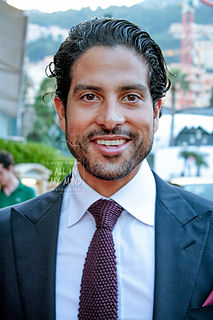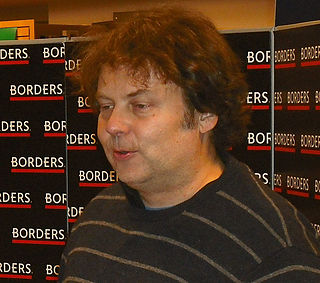A Quote by William Thurston
Math is really about the human mind, about how people can think effectively, and why curiosity is quite a good guide.
Related Quotes
Don't think about why you question, simply don't stop questioning. Don't worry about what you can't answer, and don't try to explain what you can't know. Curiosity is its own reason. Aren't you in awe when you contemplate the mysteries of eternity, of life, of the marvelous structure behind reality? And this is the miracle of the human mind - to use its constructions, concepts, and formulas as tools to explain what man sees, feels and touches. Try to comprehend a little more each day. Have holy curiosity.
It is only from the people I've had the good fortune to meet that I am learning the lessons to guide me. Baz Luhrmann, director of 'Moulin Rouge,' for example, has a childlike curiosity about the world. He doesn't pretend to know all the answers - quite the opposite, in fact. He asks loads of questions of everyone.
Jazz is really about the human experience. It’s about the ability of human beings to take the worst of circumstances and struggles and turn it into something creative and constructive. That’s something that’s built into the fiber of every human being. And I think that’s why people can respond to it. They feel the freedom in it. And the attributes of jazz are also admirable. It’s about dialogue. It’s about sharing. And teamwork. It’s in the moment, and it's nonjudgmental.
Math just wasn't my favorite. I didn't get how important math is and how it relates to real life. That's why I think I was turned off to it. Once I got down arithmetic and a little bit of algebra, I think I checked out. As I've gotten older, I think there's a lot more relation to math. English was my favorite subject.
Let me say something at the outset. The questions that have been asked so far in this debate illustrate why the American people don't trust the media. This is not a cage match. And, you look at the questions - "Donald Trump, are you a comic-book villain?" "Ben Carson, can you do math?" "John Kasich, will you insult two people over here?" "Marco Rubio, why don't you resign?" "Jeb Bush, why have your numbers fallen?" How about talking about the substantive issues the people care about?
I am a nonbeliever myself. But I think there's so much about religion that is not factual in nature as to why people engage with it and what it means to them. You can debunk why you think there's no physical evidence for God and why the story of Jesus didn't really happen that way and stuff like that all the live-long day, and it's not going to make a difference to what role religion has in people's lives and how they feel about it and how it makes their lives better or worse.
Some people think it's psuedo-science, but it's called morphic resonance. It's when someone thinks of an idea, it makes it easier for someone else to think of the idea. That's why you should do crossword puzzles later in the day, because other people have thought about the answers. That's why you hear about people coming up with inventions almost at the same time, because someone else is thinking about it. That's why whenever I have a really good idea, I'm always worried about theft.
I'm an English songwriter/composer, working in Mandarin and trying to find something about Chinese culture that I really relate to and respect and feel some genuine emotions for - and it's quite hard, the pentatonic scale, and that, in a way, is why I think it works. Because I'm forced to limit myself to quite strict rules about what I did. Maybe that's how I avoided pastiche.
Treat your career like a bad boyfriend...
Your career wont take care of you. It won't call you back or introduce you to its parents. Your career will openly flirt with other people while you are around... You have to care about your work, but not about the result. You have to care about how good you are and how good you feel, but not about how good people think you are or how good people think you look.
We have to look at levels of migration. We are in a world that is quite chaotic. Some people are really frightened about it. Some people are quite despairing. They don't believe our country is capable of providing a good quality of life. That feeds into why people voted Ukip and induces a culture of despair.







































